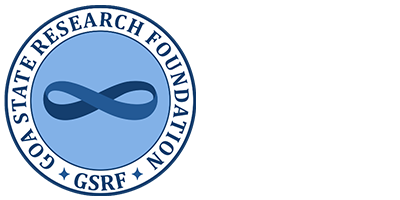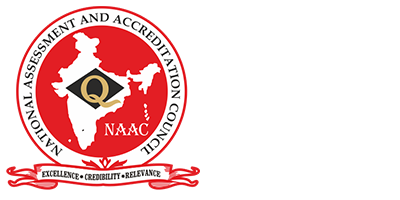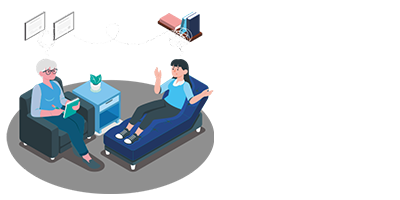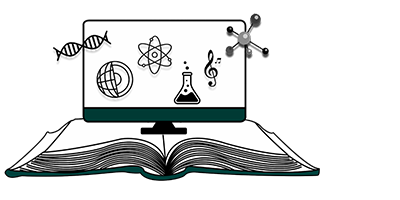

- Doctoral Fellowship Scheme
- Post-Doctoral Fellowship Scheme
- Start-up Research
- Minor Research Project
- Major Research project
- Summer/Winter Schools for School/College Students
- Formulating various schemes
- Identifying areas wherein training is required.




- Implementing Body: Directorate of Higher Education, Govt. of Goa
Brief intro/ Programme Description: Motivated, Energized and Capable Faculty” is one of the main pillars of NEP2020. Therefore, developing such faculty in all HEIs is paramount in improving the quality of higher education. Keeping this mind, Govt. of Goa, has initiated this "Faculty Enrichment Internship Program", where faculty from various HEIs do internships at different institutions of national eminence including Its, IIMs, etc. The overall objective of this initiative is to develop effective teaching pedagogies, enhance and build research collaborations, and replicate this culture of top institutes in the world in HEIs in Goa.
-
Scale: State Level
- Timeline: The program began in August 2022, where faculty from various HEIs interned at IIT Goa for an entire semester.
- Programme Status Two batches of FEIP have completed their internships at IIT Goa. The next batch will resume in August 2023. After the success of the two batches, the MOU signing with IIT Goa is scheduled to be completed in shortly. Also, to expand the coverage, two steps have been taken
- In the pilot phase of this project, faculty from only computer science and mathematics disciplines were deputed for internship. From now onwards, faculty from other disciplines are also being sent.
- Similar Faculty Internships at other institutions and industries are being arranged.
-
Need for Initiative/Objective
- To develop effective teaching pedagogies by practicing / observing the practices followed in the top institutions in India and abroad.
- To enhance and build research collaborations by being part of ongoing research projects in the host institute.
- To replicate the teaching, learning, and research culture followed in these institutes of eminence in HEIs in Goa.
- To build a strong, well informed and enthusiastic workforce that can provide the best learning environments for the students.
- Selection of faculty with no or minimal research experience.
- Faculty spend six months full time at the deputed institute.
- Each faculty is allotted a mentor faculty from the host institute based on the discipline.
- The intern faculty will carry out different tasks related to the discipline like helping the mentor faculty in delivering classroom content, assessment evaluations, and other aspects of teaching-learning. Intern faculty are also required to be part of all research related activities carried out by the mentor faculty.
- Target Segment Faculty in government and aided colleges across the State of Goa
- In the first phase, Directorate of Higher Education approached IIT Goa as the host institute of eminence in Goa to start the program on pilot basis.
- One faculty from the host institute is selected as the Coordinator for the said program.
- In the first semester of academic year 2022-23, four faculty from computer science discipline of 4 Government and aided colleges were identified for the internship.
- These faculty were placed at IIT Goa for a semester where they underwent FEIP internship.
- These faculty were expected to perform the following task during this internship
- Managing the tutorials, course related labs
- To conduct extra support to weak students
- To conduct extra classes on the topics where students are facing difficulties.
- To assist the mentor faculty in making learning materials, assignments, answer keys and rubric for grading.
- To assist the mentor faculty in preparing exam question papers/ Lab exam practical questions and conducting Quizzes, Mid Sem Exam, Final Exams
- To assist the faculty in final semester grading, paper checking.
- To mentor and guide students in class-course projects.
- During the internship period, the faculty intern should give a couple of seminars on a research topic assigned by the IIT Goa faculty mentor
- Reflect upon and document effective pedagogy for teaching the concepts in the classroom/lab.
o In the second phase, five more faculty from five different HEIs started internship at IIT Goa in the second semester of academic year 2022-23.
Monitoring and Evaluation- Monitored by the Directorate of Higher Education, Govt. of Goa with frequent meetings with the intern faculty and the coordinator.
- Evaluated by Host Institute through a report submitted by mentor faculty.
- The intern faculty are supposed to submit a report at the end of the internship once they join their college back.
- Impact and Outcome
- Energized and motivated faculty
- Faculty are exposed to the latest research projects and ideas. which helps faculty to develop new research objectives and build collaborations
- Faculty are exposed to new teaching pedagogies and work culture being implemented.
- Use of the techniques, methods and strategies learnt by the intern faculty in their colleges brings in positive changes the learning environments due to which the students are benefitted.
- Key takeaways
o Unique initiative to enhance the skill set of faculty in teaching and research
o Faculty can collaborate on on-going research projects of the host institute
Challenges & Obstacles- Brining the institutes of eminence onboard as it needs a six month commitment from the mentors to host the intern faculty.
Identifying the faculty who will undergo the FEIP program.

Integrating technology and effective pedagogies into teaching-learning process, and introducing research & innovation in higher education are the key aspects of NEP 2020.
Keeping this in mind, the Directorate of Higher Education, Govt. of Goa, has established Teaching Learning & Education Technology cells and Research & Development Cells (RDC) in all HEIs (including general education, engineering, medical and other technical programmes) in the State of Goa. Educational technology and information communication technologies (ICTs) has the capability to reach out to every nook and corner of the country and bridge the digital divide by providing teaching, learning, and assessment at large scale and fastest speed. On the other hand, establishment of R&D Cells in all HEIs will enable to develop research culture in HEIs and is expected to play a fundamental role in catalyzing multidisciplinary/ transdisciplinary research for the benefit of society.
Scale State level Timeline: Since 2020 Programme Status Teaching, Learning & Education Technology (TLET) Cells and R&D Cell (RDC) are established in 100% HEIs affiliated to Goa University, the only affiliating university in the State. Need for Initiative/Objective Establishment of TLET:- To develop and enhance the capacities of teaching faculty of Higher Educational Institutes through effective use of educational technology.
- To create frameworks for improving effectiveness of teaching and the digital competency
- To promote use of ICT for effective teaching, improving teaching-learning and evaluation processes, supporting teacher preparation and professional development, enhancing educational access, and streamlining educational planning, management, and administration including processes related to admission, attendance, assessment, etc.
- Support the faculty to review, approve, improve and update syllabi to making teaching and learning effective.
- To identify the training needs of teachers in TLE and organize regular workshops/seminars to faculties of Higher Educational Institutes in Goa
- To create conducive environment in colleges & universities for knowledge generation through improved research facilities.
- To nurture the culture of quality research by adhering to ethical practices at HEIs.
- To develop a research ecosystem for reliable, impactful, and sustained research output for the stakeholders, industrial & societal benefits and the public at large.
- To create an organizational structure with role-based functions of RDC, formulate research policy for the HEIs, identify thrust areas of research, and to form related cluster groups/frontline teams of researchers.
- To promote collaborative activities in the field of learning and research and to identify potential collaborators from industry, research organizations, academic institutions.
- To provide training to faculty and students to undertake research problems in line with the latest advances in all the disciplines at HEIs.
- The Director of TLET and nominated members among the existing faculties ensure smooth conduct of the educational technology-based activities in HEIs.
- Promoting appropriate online teaching-learning platforms.
- Creating e-Contents, digital repositories and their reliable dissemination.
- Extensive use of online exams and assessments including on 21st Century skills,
- Emphasizing the importance of blended learning and training of teachers for their digital literacy
- The Director of RDC and nominated members among the existing faculties with research credentials ensure smooth conduct of the research-based activities in HEI.
- Promotion of research through proper guidance by organizing events like training on research methodology, research techniques, specific research theme-based workshops and research internships for students, scholars, and faculties to participate actively in the process of ideation and innovative research in emerging areas.
- Creation of Research Information Management System (RIMS) for the benefit of faculty, students, industry and other stakeholders. The cell involved in collection and management of research-oriented information, databases, publications, research projects, fellowships, collaborations, patents, thrust areas, innovations etc. of their institution.
- Training researchers to maintain research integrity and publication ethics such as standard plagiarism check, publication in quality journals etc.
- It was achieved in a phase-wise manner by establishing RDC/TLET first at Six Government colleges of Goa in 2020.
- In 2021, RDC/TLET were established at remaining 32 aided colleges under the purview of the Directorate of Higher Education.
- In 2022, RDC/TLET were established at remaining all HEIs including medicine, technical and professional colleges affiliated to Goa University. Overall, all HEIs in Goa has established both the cell to develop research culture and use of technology at their institution.
- Faculty Development Programme related to research training, grant writing, teaching pedagogy, ICT tools were conducted for faculty of all HEIs in Goa.
- Hands-on training program cum workshops were conducted for Librarians on “Guide to identify Fake/Predatory/Cloned Journals in Academics”. In the follow-up activity, Librarians were asked to provide similar training to all faculty in their HEIs. These initiatives help to understand research integrity and publication ethics.
- All Faculty of HEIs in Goa were asked to create their academic research profile and Researcher ID using Scopus, Web of Science, google scholar etc.
- Provided intensive training on Out-come based education, academic management system and use of ICT in blended learning.
- Conducted workshops on creating MOOC courses
- Total 61 RDC centers at HEIs in Goa
- Establishment of Language laboratory and economics laboratories at few colleges in first phase.
- Creation of Smart digital infrastructure and smart classrooms in colleges.
- Construction of video recording facility for MOOC courses and 2 MOOC will be hosted by SWAYAM/NPTEL platform.
- Facilitate the use of Integrated Academic Management Systems (IAMS) by all HEIs in Goa.
- Research Profile ID of all faculty
- Total 61 RDC centers at HEIs in Goa
- Improvement in quality of research publications in quality journals.
- Increase in number of grant application to centrally sponsored projects.
- Improvement in quality of final year project of students at UG and PG level.
- Use of research as teaching pedagogy.
- Improvement in NAAC accreditation and ranking.
- Providing research training for UG faculty which helped in improving quality of research work and research publications.
- Providing centralized instrumentation facility for researchers and also research space for science discipline in particular in colleges.
- Access to literature search engines, databases and journals etc.
- Trans-disciplinary research in particularly collaboration with Medicine, Pharmacy and engineering institutes.
- To attract research funding from Industry oriented research projects.

- The IAIMS project automates all academic activities of colleges and provides the necessary information required to manage an institution effectively.
- It provides provision for gathering, processing and analyzing information centrally and also manages the colleges strategic goals and direction.
- Online Admission Online admission of 38 colleges, from submission of application, to selection, to the payment of fees. One of the greatest advantages of the online application system is that applicants can choose to submit their applications for multiple colleges or multiple courses free of cost.
- Student Module It comprises of student’s Personal details, family (Guardian) details, contact details, Course Enrollment, Class attendance and scholarship.
- Course Management Faculties keeps the digital records of daily lecture diary.
- Cashless Campus Students/Parents can make your institute fees payment through Net Banking, Credit Card, Debit Card, UPI etc. Track easily the fee collection, fee dues through dashboard.
- Examination module This processes all the Semester End Assessment and Final grade sheet Generation.
- Finance Module This menages a common book of accounts and pattern of assistance in a Common accounts software for all the colleges.
- Library Module A centralized Koha Library Software is installed to maintain the library records of all colleges under one framework. It has common catalogue book records of all the colleges. Faculties and Students from any colleges can have access to any books available in any other college Library.
- The system was procured from M/s. Campus EAI India Pvt. Ltd., a company having its registered office in Delhi, vide Work Order No. ACAD-II/IAIMS/29/DHE/2019/1487 dated 30/06/2020. The DHE approved an initial three-year contract with the company, kicking off in the academic year 2020-2021.
- The Officials from DHE in association with the M/s. Campus EAI India Pvt. Ltd conducted various meetings for data requirements and gathering of the academic processes from HEIs.
- Several online and offline trainings were conducted to train the faculty and staff members of the colleges.
- DHE has a dedicated team to monitor the implementation and execution of the IAIMS project across the HEIs in Goa.
- Online admissions were held in all HEIs under administrative purview of DHE Goa for the academic year 2020-21,2021-22,2022-23.
- Every year more than 14 thousand applications are processed.
- All students pay the fees in the digital mode through the payment gateway of IAIMS.
- All e-prospectus of the HEIs and made freely available to the students on DHE’s portal.
- Detailed research profiles of all faculty are available on the portal.
- Students can monitor the class attendance on the portal in real time
- Around 27000 students have access to academic course content made available through Moodle platform.
- All colleges have processed their examination grade sheets as per the statute of Goa University for the academic year 2021-22, and 2022-23 and have also issued to the students.
- This manages a common book of accounts and pattern of assistance in a Common account software for all the colleges. This helps the accounts department of DHE to monitor the accounting transactions on one dashboard.
- The Library Management Koha software encapsulates all the library activities as required for a comprehensive library software.
- The IAIMS portal can store large amounts of data and information, making it easy for educators to access and analyze the data. This helps in keeping track of student performance, teacher performance, and overall educational performance. The data can be used to make informed decisions about the future of the institution, such as resource allocation and curriculum development.
- The system is used to track student performance, store academic records, manage finances, and monitor teacher performance. This data can be used to hold educators and institutions accountable for their actions and to ensure that they are providing a quality education to their students.
- The system is used to improve communication between educators, students, and parents. The system can be used to send out notifications, updates, and reminders, which can help to keep everyone informed and up-to-date.
- Need for a much larger technical team to create, maintain, and analyse the data for key policy decisions.

- Implementing Body: Directorate of Higher Education (DHE), Govt. of Goa
- Brief intro/ Programme Description: National Education Policy (NEP) 2020 recommends increase in Gross Enrollment Ratio (GER) in higher education in India to 50% by 2035 and emphasizes on access to quality education for all. In view of the same, MANDAVI is an initiative of DHE for development of Massive Open Online Courses (MOOC)s to provide high quality courses to thousands and millions of learners across the globe. MOOC is a mode of learning where students can virtually attend digital higher education courses, which are developed and taught by the eminent subject experts.
With an intent to facilitate seamless integration of MOOCs into the academic structure of higher education, DHE has launched MANDAVI program for mentoring, training and supporting faculty from higher education institutions of Goa towards design and development of the MOOC content. The unique characteristic of this model is to carry out the production-based training and recording of video content of the course with the creative directors and experts from the film industry to produce high-quality educational content. Eminent scientists and practitioners from research institutions and industries have been involved at various stages of the MOOC development process.
The MOOC courses currently under development at DHE are based on University Grants Commission (UGC) curriculum and Choice based Credit System (CBCS) and is proposed to be offered in credit transfer mode on the Study Webs of Active Learning for Young Aspiring Minds (SWAYAM) platform managed by Consortium for Educational Communication (CEC), the national coordinator designated by Ministry of Education (MoE).
- Scale: State Level
- Timeline: On September 2022, Directorate of Higher Education launched the “MANDAVI” (Mentoring and Nurturing Digital and Virtual Initiatives) flagship program. On this occasion, the DHE and Consortium for Educational Communication (CEC, New Delhi) signed a Memorandum of Understanding (MoU).
- Programme Status: Ongoing (Development of MOOC in Geology is in progress)
The development of following MOOCs is complete:
- Analytical Chemistry titled ‘Advances in Instrumentation and Chemical Data Analysis’
- Music titled ‘Enhancement of Vocal Skills’
- DHE handed over these two MOOCs to CEC, New Delhi.
- Need for Initiative/Objective:
- University Grants Commission (UGC) regulation on 25th March 2021 stated that Universities/ Higher Education Institutions (HEI) are to allow 40% of the total courses in a particular degree programme in a semester, through online credit courses through MOOCs. A credit MOOC can be opted by a student who is enrolled in any educational institution across the globe.
- In view of the above, DHE, Goa through MANDAVI program has modelled the process of constructing MOOCs in phased manner with each MOOC addressing all aspects pertaining to creation, development and delivery of complete MOOC course. The subsequent hosting of the MOOC courses will be done on SWAYAM. With the collaboration with the national coordinator CEC, India, the MOOCs developed at the DHE-Goa, will be scalable to cater credit courses to large number of learners at national/international level.
- Components of the Scheme:
- The MANDAVI program of DHE has established the framework and has created facility for MOOC design and development to built an ecosystem for 360 degree in- house design and development of MOOCs.
- The MANDAVI program implementation is done by parallel development of multiple MOOCs from various disciplines in higher education.
- MOOCs are developed in accordance with four quadrant SWAYAM model and CEC guidelines.
- For the production of the video content, unlike the traditional MOOC recording, MANDAVI has established a unique workshop support system where academic experts, film directors, animators, editors and cameramen are brought onto a single platform and film style recording is done by writing audio visual scripts.
- The Teaching Learning Strategy has been focussed on generating learner centric content by performing through need analysis and following outcome based education (OBE) model based on blooms taxonomy.
- The MOOC courses developed are subsequently submitted to CEC for subsequent review and hosting on the SWAYAM platform.
- Target Segment: UG and PG students from various higher education disciplines / learners from anywhere in India and across the globe can enroll in MOOCs on SWAYAM platform. As per the UGC guideline, the credits earned from such MOOCs may be transferred for fulfilling degree requirements of colleges and universities, anywhere in India.
- How it was achieved:
- It was achieved in a phased manner by developing multiple MOOCs in parallel fashion.
- DHE invites proposals from HEI’s for creation of novel and high quality MOOC’s based on UGC curriculum and CBCS system. The Expression of Interest (EOI) is formulated based on CEC and SWAYAM guidelines and is floated to all HEI’s in Goa and Goa University functioning under the purview of DHE.
- The response to the EOI is invited by submission of synopsis and based on the review from experts courses are selected for development.
- Faculty is deputed full time at DHE for training and dedicated development of the MOOC course.
- The SWAYAM prescribed four-quadrant format for MOOCs has been adopted in developing the MOOC.
- The MOOC development goes through pre-production, production and post –production stages.
- The MOOC development follows modular approach. The content modularization is done by distribution of modules per faculty based on their expertise & experience.
- Currently, temporary video-recording studios have been setup for recording purpose.
- The MOOCs are entirely developed in-house by the MOOC team at DHE. The production-based workshop is conducted in production stage of MOOC development by associating each MOOC course with creative director from the film industry. The creative directors are involved on remuneration basis.
- As per the demand of the content, DHE facilitates interaction of MOOC team with industry.
- Notes aligned to video content, glossary, transcript variety of practice questions and assignments, case studies with data from research articles is done.
- At each stage of quadrant 2 to quadrant 4 data alignment of outcomes to objectives is done by Peer review of quadrant data, Systematic review of all four quadrants of MOOC with the help of reviewers and alignment templates ensures that the outcomes of the MOOC are aligned to the planned objectives.
- The MOOCs thus getting generated from this life cycle get finally ready for onward submission to CEC for further review and subsequent hosting on SWAYAM platform.
- MOOCs thus become globally available to the learners.
- Monitoring and Evaluation: Directorate of Higher Education, Govt. of Goa
- Impact and Outcome:
- Currently phase-1 is in progress where DHE has shortlisted 5 courses for MOOC development which includes Music, Analytical Chemistry, Geology, Microbiology and Biochemistry. Course development for a UG course in Music and PG course in Analytical Chemistry is complete whereas Geology is in development. Course e-content writing based on SWAYAM 4-quadrant model is complete and recording has been scheduled from 10th May 2023.
- With an objective of continuous development of MOOCs, MANDAVI is an initiative devised to decipher ways in which 360 degree MOOC development can be facilitated in-house in order to increase global access to quality education.
- To provide MOOCs of professional production quality creative directors from film industry are necessarily involved in production of MOOC content of
- Key takeaways:
- In the view of NEP 2020, MANDAVI targets to provide high quality courses to thousands and millions of learners across the globe.
- To establish a self -reliant ecosystem generating pipeline of MOOCs in phased manner with each phase having parallel development of multiple MOOCs from various disciplines in higher education in Goa.
-
Challenges & Obstacles:
- Large amounts of similar courses for saturated areas may lead to a paradox of choice.

- Implementing Body: Directorate of Higher Education (DHE), Govt. of Goa
- Brief intro/ Programme Description: Skill development and providing employment opportunities is one of the objectives under new National Education Policy (NEP 2020). This requires strengthening of Industry – Institute Interactions. For continuing collaboration with the Industry to skill and train students from all Higher Education Institutes (HEIs) and to prepare students to be Industry ready, a central Training Internship and Placement (TIP) cell for all HEIs is installed by GSHEC. The TIP cell is focused on strengthening the industry - institute interactions. Besides providing students placements, the cell will offer students the required soft skills and skill enhancement training to help them become successful in the interviews. GSHEC signed MoUs with Skilling organizations including Newton School, Beunlu Pvt Ltd (Mugafi), Navgurukul Foundation for social welfare and ENTRI.
- Scale:Level
- Timeline: September 2022 (on Going)
- Programme Status: Conducted launch events for ‘Creators Connect’ for Up skilling creative learning.
- Need for Initiative/Objective:
The objective is to provide extensive training to students aspiring to become writers and musicians across the State of Goa by giving them the opportunity to learn from the best-in- industry mentors and teachers across the Media & Entertainment industry and eventually to create content Intellectual Property (IP) which can be further monetised across different mediums.
- Components of the Scheme:
The central Cell of TIP, GSHEC provides all requisite support and assistance to Unlu (MUGAFI). TIP will identify students for training from various Higher Education Institutions for training in acting, writing, music, and other mutually identified domains every year and share the details of such identified candidates with Unlu. The Unlu (Mugafi) team will execute the strategic 4-step execution plan consisting of Unlu-Sponsored Bootcamp, Unluclass, Unlu Creator Fellowship and finally withe Unlu Marketplace.
- Target Segment: UG and PG students in various programs in Goa University and all HEIs in the State of Goa.
- How it was achieved:
Unlu provides unparallel learning and career development through a strategic 4- step execution plan to the selected students from various Higher Education institutions across Goa every year. The strategic 4-step execution plan shall be carried out in the following manner:
Step 1 - Unlu-Sponsored Bootcamp:
Unlu provides 4-weeks of learning access to world-class faculties across acting, writing, music, and other mutually identified domains for free for the students across the State of Goa.
Step 2 - Unluclass:
Students shall be given an opportunity to work on assignments as per their genre of choice across music, writing, and filmmaking. Based on the assignment submissions, Unlu shall extend the opportunity to 250 students every month to get access to live mentoring and creator community with constant feedback to create their IPs.
Step 3: Unlu Creator Fellowship:
Unlu Creator Fellowship shall enable students to be part of Creator’s network and monetize their songs and scripts. Unlu shall also provide opportunities for film creation to top student scriptwriters from Goa, where the filming process and distribution shall be done with the help of production houses like Excel Entertainment, BSL, Dharma, and so on.
Step 4: Unlu Marketplace:
Unlu shall facilitate work opportunities for the fellows completing the fellowship program by creating music, scripts, screenplays, audio stories, and ads from the film Industry and generate revenue per IP.
- Monitoring and Evaluation: Monitored by Goa State Higher Education Council and Directorate of Higher Education, Govt. of Goa
- Impact and Outcome:
A launch event was organized titled “Creators Connect” to mobilize students and prepare them for the creative connect boot camps. Renowned artists from the Indian film industry were eminent speakers at the event. A total of 350 students from 40 general & professional HEIs across the State of Goa participated the program.
- Key takeaways:
- First of its kind in India a Creative connect event & boot-camp was launched in Goa to cater to HEI learners in the creative field of creative writing, music, film making, etc
- The boot-camp in creative courses will enable students from general education and professional courses to take up creative courses in their academic programmes
-
Challenges & Obstacles:
- Introduction and monitoring the creative courses offered to all HEIs in Goa.
- Infrastructure and other facilities required in HEIs for establishing creative centers for larger student community.





